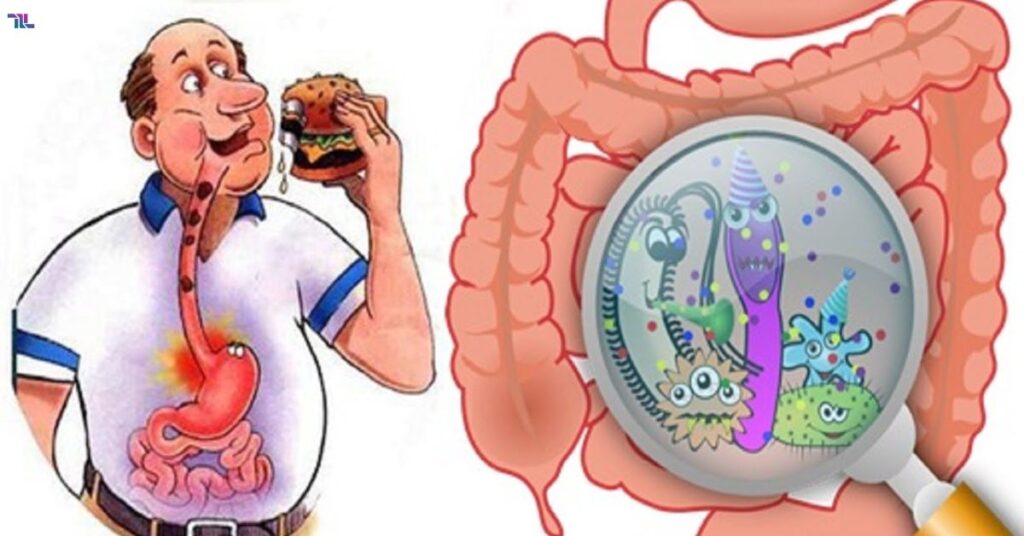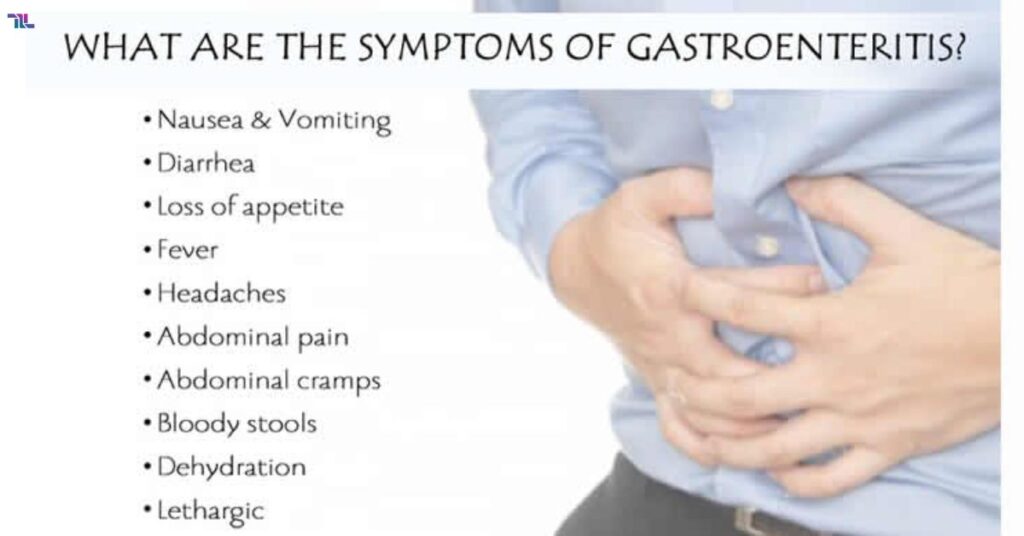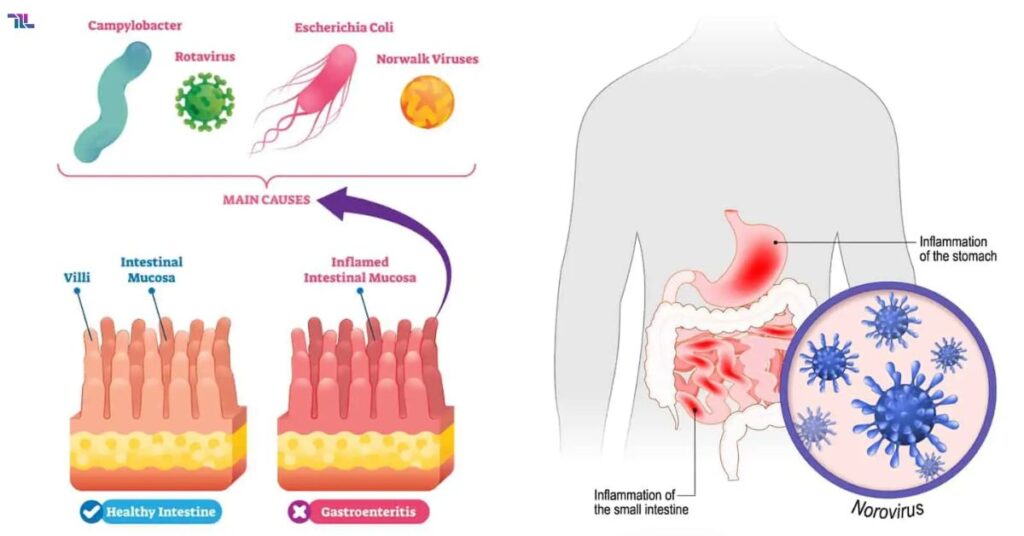Gastroenteritis is a common illness that can make you feel really uncomfortable. Imagine your tummy feeling like a rollercoaster ride gone wrong! This guide will help you understand what gastroenteritis is, how it happens, and what you can do to stay healthy.
Ever felt like your stomach was staging a rebellion? Imagine tiny germs turning your tummy into a battleground of discomfort. Our kid-friendly guide will unlock the mysteries of gastroenteritis and help you fight back like a health superhero!
Gastroenteritis is a common stomach illness that can make kids feel really sick. It happens when germs attack your digestive system, causing symptoms like vomiting and diarrhea. This guide will help you understand how to stay healthy and fight off this uncomfortable condition.
What Is Gastroenteritis?

Gastroenteritis is an inflammation of the stomach and intestines. It’s often called the stomach flu, but it’s not actually related to the flu. Think of it like a tiny battle happening inside your digestive system. Microscopic germs can cause this uncomfortable condition that makes your stomach and intestines feel upset.
Also Read This Blog:TabletWritings.com Blog: Your Guide To Creative Writing And Tablet Tech
Key Signs And Symptoms Of Gastroenteritis

Your stomach might start feeling weird with waves of nausea and sudden vomiting. These are your body’s first signals that something is wrong inside your digestive system. The uncomfortable feeling means germs are attacking your stomach.
Diarrhea can quickly follow, making you run to the bathroom frequently. Your tummy will feel painful with uncomfortable stomach cramps. These symptoms show your body is fighting hard against harmful microorganisms.
A mild fever might develop as your immune system battles the infection. You’ll feel extremely tired and lose your appetite completely. These signs indicate your body is working overtime to kick out the unwelcome germs.
Nausea And Vomiting
Your body might try to fight off the harmful germs by making you feel sick. Nausea is that queasy feeling that makes you want to throw up. When you actually vomit, it’s your body’s way of getting rid of the bad stuff inside.
Diarrhea
Diarrhea is when you have runny, watery poop that happens more frequently than usual. It can be messy and uncomfortable. Your body is trying to flush out the harmful microorganisms that are causing the problem.
Stomach Cramps And Pain
Your tummy might feel like it’s doing weird gymnastics. Stomach cramps are sharp or dull pains that can make you feel really uncomfortable. These cramps happen because your intestines are working hard to fight the infection.
Fever
A fever is your body’s secret weapon against germs. When you have gastroenteritis, your temperature might go up as your immune system fights the infection. It’s like your body turning up the heat to kill the bad guys!
Fatigue And Weakness
You might feel extremely tired and have no energy. This happens because your body is using all its strength to battle the germs causing gastroenteritis.
Loss Of Appetite
Food might not sound good at all. Your body is focusing on healing, so you might not feel like eating much.
Also Read This Blog:Zerodevicenet: Features, Benefits, And FAQs Explained
Causes Of Gastroenteritis

Viruses are the most common cause of gastroenteritis, with rotavirus and norovirus being primary culprits. These tiny microorganisms invade the digestive system, triggering inflammation and uncomfortable symptoms. Children and people with weak immune systems are particularly vulnerable to viral gastroenteritis.
Bacterial infections from organisms like E. coli and salmonella can also lead to gastroenteritis. These harmful bacteria enter the body through contaminated food, water, or poor hygiene practices. They quickly multiply in the digestive tract, causing intense stomach distress and potential health complications.
Parasites represent another significant cause of gastroenteritis, especially in regions with limited sanitation. Microscopic parasites can enter the body through contaminated water or food, establishing themselves in the intestinal system. These unwelcome organisms disrupt normal digestive functions and create a challenging health environment for the infected individual.
Viral Causes
Viruses are the most common culprits. Tiny microscopic organisms like rotavirus and norovirus can sneak into your body and cause gastroenteritis.
Bacterial Causes
Some bacteria can also cause this condition. E. coli and salmonella are examples of bacteria that can make you sick.
Parasitic Causes
Parasites are tiny organisms that can live inside your body and cause trouble. They’re like unwelcome guests in your digestive system.
How Gastroenteritis Spreads
**Germs causing gastroenteritis can spread quickly through close person-to-person contact. Touching or being near someone who is sick can transfer harmful microorganisms. Kids often spread these germs in schools, playgrounds, and other shared spaces.
**Contaminated food and water are major routes of transmission for gastroenteritis. Eating unwashed fruits, undercooked meals, or drinking unclean water can introduce dangerous bacteria and viruses. Poor food handling and preparation increase the risk of infection.
**Poor personal hygiene dramatically increases the chances of spreading gastroenteritis. Not washing hands after using the bathroom, before eating, or after touching contaminated surfaces allows germs to move easily. Regular handwashing is a powerful defense against these harmful microorganisms.
Person-To-Person Contact
Germs can spread easily through close contact with someone who is sick. Sharing utensils or not washing hands can transfer these nasty microorganisms.
Contaminated Food Or Water
Eating unclean food or drinking contaminated water can introduce harmful germs into your body.
Poor Hygiene Practices
Not washing your hands properly is like rolling out a welcome mat for germs!
Risk Factors For Gastroenteritis
Young children, older adults, and people with weak immune systems are more likely to get gastroenteritis. Proper hygiene and healthy habits can help reduce your risk.
Diagnosis Of Gastroenteritis
Doctors can diagnose gastroenteritis by listening to your symptoms and sometimes doing simple tests to check for specific germs.
Treatment Options
Hydration
Drinking lots of water and clear fluids is super important. When you have diarrhea and vomiting, your body loses a lot of water.
Medications
Sometimes doctors might recommend special medicines to help manage symptoms.
Antibiotics
These are only used in specific bacterial infections and are prescribed by a healthcare professional.
Home Remedies For Gastroenteritis
Rest, drink plenty of fluids, and eat bland foods like bananas, rice, and toast. These can help your body recover.
How To Prevent Gastroenteritis
Hand Washing
Wash your hands with soap and water frequently. This is like creating a force field against germs!
Safe Food Practices
Cook food thoroughly and keep your kitchen clean. Avoid eating raw or undercooked foods.
Vaccinations
Some vaccines can help prevent certain types of gastroenteritis.
When To Seek Medical Help
If symptoms are severe, last more than a few days, or if you can’t keep fluids down, it’s time to see a doctor.
Complications Associated With Gastroenteritis
Severe cases can lead to dehydration and other health issues if not treated properly.
Dietary Recommendations For Recovery
Eat small, light meals. Avoid dairy, fatty, and sugary foods until you’re feeling better.
Frequently Asked Questions (FAQ’s) About Gastroenteritis
How Long Does Gastroenteritis Last?
Typically 1-3 days, but it can vary depending on the cause.
Is Gastroenteritis Contagious?
Yes, many forms are highly contagious and can spread quickly.
Can I Go To School If I Have Gastroenteritis?
It’s best to stay home to rest and prevent spreading germs to others.
What Foods Should I Avoid?
Stay away from dairy, spicy, and fatty foods until you recover.
How Can I Prevent Getting Gastroenteritis?
Wash hands, eat clean food, and maintain good personal hygiene.
Conclusion
Gastroenteritis is a challenging illness that can disrupt your health and daily life. Understanding its causes, symptoms, and prevention strategies is crucial for staying healthy and recovering quickly. By practicing good hygiene and listening to your body, you can effectively manage this common digestive condition.
Children and families play a critical role in preventing the spread of gastroenteritis. Simple actions like washing hands, eating clean food, and maintaining proper personal hygiene can significantly reduce the risk of infection. Staying informed and proactive is key to protecting yourself and your loved ones.
Recovery from gastroenteritis is possible with proper care and attention. Rest, hydration, and following medical advice are essential steps in healing. Remember that your body has an incredible ability to fight off infections, and with the right support, you’ll be back to feeling healthy and energetic in no time.
